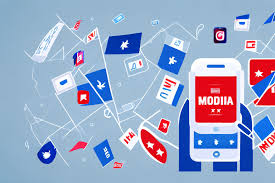Social media has revolutionized the way politics is practiced in the 21st century. From the Arab Spring to the rise of populism, social media platforms have become integral to political campaigns, political movements, and even international diplomacy. But while these platforms offer unprecedented levels of communication, they also pose significant risks to the integrity of democratic systems.
1. Social Media’s Impact on Political Campaigns
Political candidates now rely heavily on social media platforms like Twitter, Facebook, and Instagram to communicate directly with voters. Social media allows politicians to bypass traditional media channels and craft their message without the filtering of journalists. This direct line of communication enables candidates to connect with younger generations, mobilize supporters, and spread their political messages rapidly.
However, the use of social media in politics is not without its drawbacks. The spread of misinformation and “fake news” on these platforms has raised concerns about the accuracy of the information voters receive. Social media algorithms can create echo chambers, where users are only exposed to ideas that align with their beliefs, exacerbating political polarization.
2. Social Media in Political Movements
Beyond traditional campaigns, social media has played a key role in organizing political movements. The Arab Spring in 2011 is one of the most prominent examples, where social media was instrumental in mobilizing citizens to protest against oppressive regimes. In more recent years, movements like Black Lives Matter and the #MeToo movement have gained momentum largely through social media.
While social media allows for quicker and more widespread mobilization, it also presents challenges. Governments may attempt to restrict access to social media or manipulate public opinion through digital propaganda. In many countries, social media is being used to monitor and control political dissent, leading to concerns about censorship and surveillance.
3. The Dark Side: Cybersecurity and Election Interference
The role of social media in elections has come under scrutiny, particularly in the wake of the 2016 U.S. presidential election. Foreign actors used social media platforms to spread disinformation and influence public opinion. The ability to target voters with personalized ads and misleading information has raised alarms about the integrity of democratic elections worldwide.
Cybersecurity experts have warned that social media platforms are vulnerable to manipulation, and many countries are now investing in strategies to safeguard their elections from interference. The issue of digital privacy and the potential misuse of personal data for political gain is also a growing concern.
4. Conclusion: The Future of Social Media in Politics
As social media continues to evolve, so too does its role in politics. While these platforms provide new ways for politicians and citizens to engage with one another, they also raise serious questions about the integrity of political discourse. Going forward, ensuring that social media remains a tool for constructive political engagement, rather than division and misinformation, will be a key challenge for lawmakers and tech companies alike.
